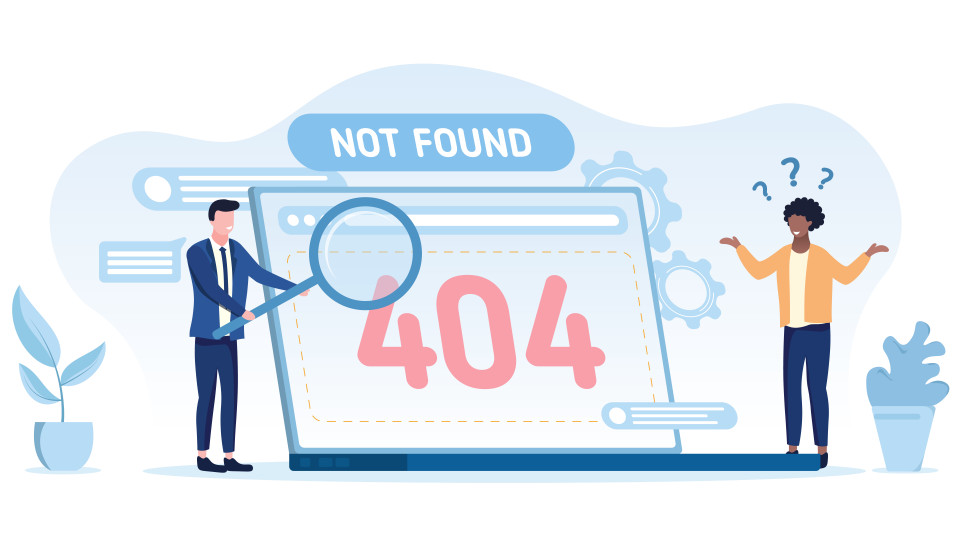Scrapers’ backlinks, Orphan pages and Google Juice: 10 SEO things web owners need to know
We sat down with the hit team from Ahrefs to answer some pressing questions

Dabbling with website builders and web hosting? PageRank and generally speaking Google’s algorithmic structure depends a lot on backlinks, both internal and external. However, the sheer volume of changes happening in the world of SEO might leave those who aspire to take their new web properties to new heights, a bit lost.
We probed Joshua Hardwick, Head of content at Ahrefs and Patrick Stox, Technical SEO and Product Advisor at Ahrefs on a few niche but still interesting topics on link building.
How does one find orphaned pages (i.e. pages with no internal links to) on a site?
JH: Orphan pages are actually kind of tricky to find. The “best” way is probably going to be crawling your site with something like Ahrefs’ Site Audit and using backlinks & sitemaps as URL sources. This is not a foolproof way to find every orphan page but because it uses backlinks and sitemaps as a source of URLs on your site, it will know if those pages have no internal links after the crawl.
PS: In general to find orphan pages you need to crawl a site and combine that data with other sources of data for pages. In the case of Site Audit, we have sitemaps, backlinks, or you can upload a custom list of pages. The pages not found with the normal crawl but included in other sources are the orphan pages.

Websites often split a longer page (often a review) and put less important information (but nonetheless valid) on subsequent pages. Does it have an impact on SEO?
JH: This will likely come down to search intent for those topics/subtopics. If Google is ranking broader guides about the topic for the subtopic (less important information), then you can probably just put that less important information on a page about the topic. But if Google is ranking pages specifically about the subtopic for the subtopic, you might be better off creating a separate page about that subtopic.
PS: If you're splitting a page you're splitting the content and sometimes that's good and sometimes that's bad. Each page would have its own amount of "Google Juice" which is just PageRank.
Is there a hierarchy of internal backlinks? (e.g. do some links count more than others - a link from an internal page that has a lot of backlinks counts more than an internal page with few backlinks)
JH: Generally speaking, yes. Internal links from pages with more backlinks will potentially transfer more PageRank to the internally linked page.
PS: Not necessarily more links, but stronger (more PageRank) and more relevant links will have more impact.
Is it your belief that internal backlinks follow the law of diminishing returns? (e.g. once you’ve reached 500 for e.g. you should just stop)
JH: No because every internal link can transfer PageRank and help a page to rank. And even if the page ranks already, relevant internal links are still useful for site visitors - so there’s no need to have a cutoff point.
PS: It's usually a good idea to link everywhere it makes sense, not just for SEO but for business reasons.
How can scrapers be detrimental to your website when it comes to SEO? Can they be beneficial (e.g. give you backlinks)?
JH: Pretty unlikely to be detrimental these days AFAIK. Google is usually pretty good at understanding when a site has scraped your content and accounting for that.
PS: There's a risk they could be chosen as the canonical version and be the one shown in Google, but this is fairly rare and would usually happen more with syndicated content and not scraped content. They could give you links, but again more than likely for scraper sites which tend to be lower quality, these links would likely not count at all.

Is it worth updating old broken (404) internal links?
PS: Rarely worth it for SEO. It's part of general website health and maintenance and it's a bad user experience if people click one of these. Usually, the links like this are because a page was removed completely so there's nothing really to update it to. If they had redirected the old page to a new one, then it would be a redirect instead and I'd suggest doing the redirect before changing all the internal links.
Is it worth adding links to existing articles for SEO purposes?
PS: Always link to relevant content. Especially with new content, adding relevant links from existing content gives the new content its best chance at ranking.
What’s the latest update on 301 redirects based on what you’re seeing at Ahrefs?
PS: 301 redirects pass the full value as long as the content is similar. If the content of the pages is completely different they may be treated as soft 404s and pass no value.
Are there any pitfalls to doing a 301 redirect?
PS: It's generally fine but make sure it's to the right page. Because of things like caching it may be hard to change later and the same with consolidation of signals, this usually happens within a year so of changing a redirect, after that time means that the value is already at the other page.
Want to improve your website's search ranking? Check out our roundups of the best SEO tools and best onpage SEO tools
Are you a pro? Subscribe to our newsletter
Sign up to the TechRadar Pro newsletter to get all the top news, opinion, features and guidance your business needs to succeed!

Désiré has been musing and writing about technology during a career spanning four decades. He dabbled in website builders and web hosting when DHTML and frames were in vogue and started narrating about the impact of technology on society just before the start of the Y2K hysteria at the turn of the last millennium.